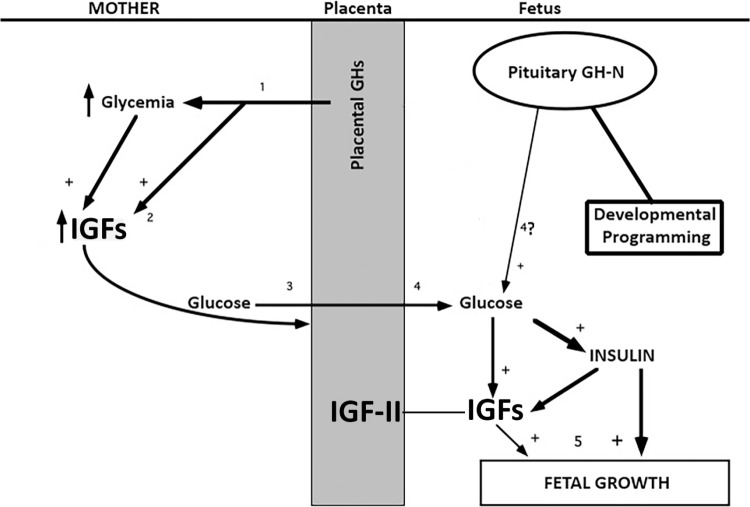Figure 5.
Fetal growth. (1) Placental GHs, particularly GH-V, are progressively increasing in maternal blood inducing an increase in plasma levels of glucose. This, and presumably (2) the effect of GH-V on liver, increases the hepatic production of IGFs, which optimizes the supply of nutrients to the fetus (3), particularly glucose. The resulting increase in fetal glycemia (4) induces increased release of fetal pancreatic insulin, and the hepatic production of IGFs, which also can be induced by insulin. Despite pituitary fetal GH-N secretion, it is unlikely (4?) that it contributes to fetal hyperglycemia. For its part, the placenta significantly contributes to the increase in fetal plasma concentrations of IGFs by producing IGF-II. Fetal GH most likely plays a role on the developmental programming of virtually all tissues and organs. (5) Insulin, mainly, and IGFs are the hormones that the fetus needs for growing.
Abbreviation: +, stimulates.

